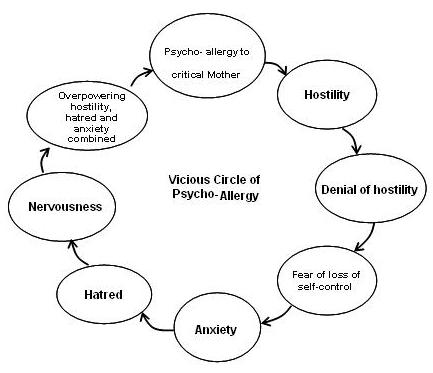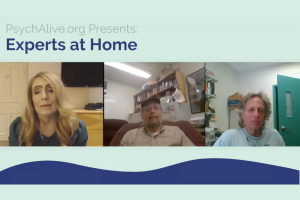Having an Allergy to a Person – Part 1

Having a relationship with a toxic person
In her routine clinical practice, this author often comes across young men and women who have everything — good looks, intelligence, lots of clothes, sound bank balance, loving husband or wife — and yet, they have nervous breakdown or bouts of depression and anxiety. In most of the cases, it’s because they are allergic to some personalities who are significant in their lives, just as some people have food allergies.
Much has been said and written about food allergies, but too little attention has been paid to social allergies – allergies to people who don’t agree with you and who rub you the wrong way until your spirit is skinned down to raw nerves. Most of the people can eat tomatoes, wheat or strawberries; yet these same foods give others hives or big itchy bumps. Similarly, one person’s friend is another one’s poison.
Ironically enough, sometimes the people with whom you have to live are your greatest mental hazard. They can build you up or tear you down. At times, they can make you angry enough to scream. But, in most of the modern civilized and diplomatic situations, you don’t scream at others. There are social pressures on you to swallow your anger tactfully and, unfortunately, you can’t always digest all of it. Consequently, the end result is tension or a nervous stomach or a nervous breakdown.
Now the question arises, why is there so much latent hostility, hatred and anxiety within the human heart? The only scientific answer seems to be that learning, especially childhood conditioning, plays a dominant role in this respect. For instance, our socialization process teaches children certain attitudes that are based upon defense against aggressions by their elders especially the significant others. Children adjust to frustration and disillusionment by repressing resentment, which they do not recognize or understand. This generates underlying anxiety and hostility, resulting in allergy to some people or to some situations in adult life later on. Remember, within the human heart is the dynamite of hatred, rage and hostility. Therefore, we must be careful of our contacts and fully aware of our unfinished/unresolved conflicts with significant others, lest friction should light the fuse.
Inner conflict caused by interpersonal conflicts, once aroused, grows like a forest fire. Here, reference may be made to a young female client of mine who is currently suffering from neurosis. Actually, she has painted on some secret wall of her mind a picture of a perfect mother-daughter relationship. This is her dream — an ideal and a desperate wish! She basically loves this ideal image; whereas, in reality her mother is very critical, stingy and overprotective. Most of the time she feels hostile and aggressive towards her mother, but she would not let reality (presence of hostile feelings towards overcritical mother) cast an evil light upon it (the ideal image of mother-daughter relationship). So she sits and listens to her mother’s critical remarks. Consequently, she clenches her fist and keeps repeating to herself Please, God, don’t let me scream. Now, the situation is that her own mother arouses overwhelming feelings of hostility and anger that she has to smother. In fact, she is pressed in between the barbs of hostility and the stinging of her conscience. She continuously swallows her irritation, tenses up and holds in all expression of her feelings. The hostility repressed by conscience produces an inner conflict that results in anxiety and neurosis. Consequently, she condemns herself and feels inferior, utterly futile and helpless. Now, a vicious circle has set in. She fears she might lose self-control and be rude or hostile to her mother, which in turn produces anxiety. Anxiety feeds hatred and growing hatred, in turn, builds up more anxiety. This is how we develop psycho allergy or social allergies, as shown in the Figure: 2 given below:

It’s rather interesting that we are usually unaware of our own emotions, such as the underlying anxiety, anger and hostility, but they are in there, producing violent emotional outbursts. Therefore, let us not underestimate the underlying anxiety and hostility which make us allergic to some people in our lives.
Continue with Parts 2 and 3 of this Blog Series:
How to Cope with an Allergy to a Person – Part 2
How to Treat an Allergy to a Person – Part 3










Aoa where are you working mam Are you still teaching And practicing